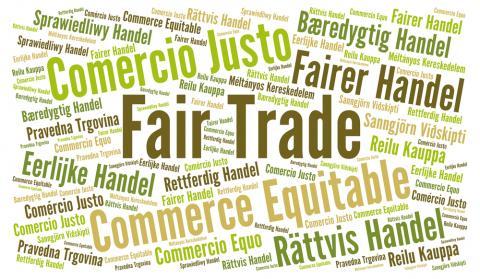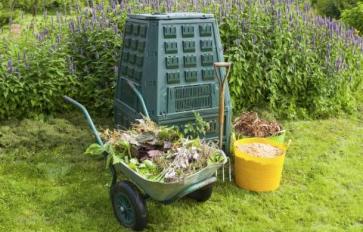
Fair Trade is a global movement that came to fruition in 1946, after one of the earliest Fair Trade movement stores, Ten Thousand Villages, started buying needlework from Puerto Rico. As the World Fair Trade Organization explains, “"Fair Trade is a trading partnership, based on dialogue, transparency and respect, that seeks greater equity in international trade. It contributes to sustainable development by offering better trading conditions to, and securing the rights of, marginalized producers and workers—especially in the South.” In general, Fair Trade organizations work to demonstrate that fairness in global trade is possible, that businesses can be successful by putting people first—and combat large scale issues like climate change and poverty at the same time.
Why Choose Fair Trade?
Choosing to purchase Fair Trade products—which can include everything from bananas and chocolate to cotton and coffee—can help farmers and workers get fair pay from their livelihoods, in addition to promoting sustainability. Additionally, Fair Trade businesses often work under stricter environmental regulations; those regulated as Fair Trade Premium businesses also invest money into local projects, thereby aiding other small businesses.
What Products Are Fair Trade?
The World Fair Trade Organizations works with more than 1.66 million farmers and workers which includes 1,411 Fair Trade certified organizations in 73 countries. Within this umbrella, you can purchase the following products:
- Coffee
- Chocolate
- Bananas
- Coconut Oil
- Flowers
- Gold
- Wine
- Herbs
- Pineapple
- Sugar
- Tea
- Beauty products
- Sports equipment
How To Fair Trade Your Home
Purchasing Fair Trade products in lieu of mass-produced items can help small businesses in economically disadvantaged areas of the world. Along with benefitting farmers and workers who might otherwise be paid unfair wages for their work, Fair Trade items must be free of genetically-modified products and grown with very minimal amounts, if any, of pesticides and insecticides. A variety of Fair Trade-certified products can replace items that might otherwise have been produced by workers who aren’t receiving fair wages and are living in unsafe conditions. Instead, many of our everyday household items can be purchased knowing that the products we use in our homes have been produced ethically. Did you know that all of these products can be purchased Fair Trade?
Kitchen
Many of us go to big box stores to fill our kitchen cupboards with appliances, dishes, and silverware, but most of these can be purchased at Fair Trade-certified businesses. Look for colorful ceramics, handwoven bread warmers, serving trays made from reclaimed wood, and etched mortar & pestles.
Home Decorations
A variety of holiday ornaments are available for purchase through several Fair-Trade certified stores. Along with being made by hand, these products are often made using sustainable materials like felt. Additionally, dream catchers, macrame wall hangings, and even prayer flags can brighten a home.
Bedroom
To make the bedroom fair-trade friendly, purchase linens, sheets, and carpets to brighten your home and support fair trade businesses.
A Fair Trade Warning
While Fair Trade’s roots were founded on helpful ideals, it’s worth noting that some Fair Trade is little more than a marketing scam. Many people confuse Fair Trade with simply returning home with souvenirs bought at a local shop during vacation, but the assumptions that these products actually support local workers can be mistaken.
Additionally, The Center for Global Development expressed concerns over the methodology used in the Fair Trade business plan, noting that farmworkers (not farmers, but those that they hire) tended to receive smaller wages than those not working on Fair Trade farms. Other studies prompt questions about the quality of the farmworkers’ work environments and how much time they are able to work. Unfortunately, studies don’t yet compare a farm before and after a Fair Trade certification, making it difficult to know for sure if Fair Trade is actually disadvantageous to farmworkers.
Get To Know Your Businesses!
All of this said, until studies prove otherwise, Fair Trade is a great option for helping to support businesses that employ local people. Beyond simply looking for the Fair Trade label, learning more about the business that you’re buying from—whether you’re purchasing lamps for your bedroom, utensils for your kitchen, or blankets for your bedroom—is always a good option.
Do you support Fair Trade businesses? Let us know in the comments below!








